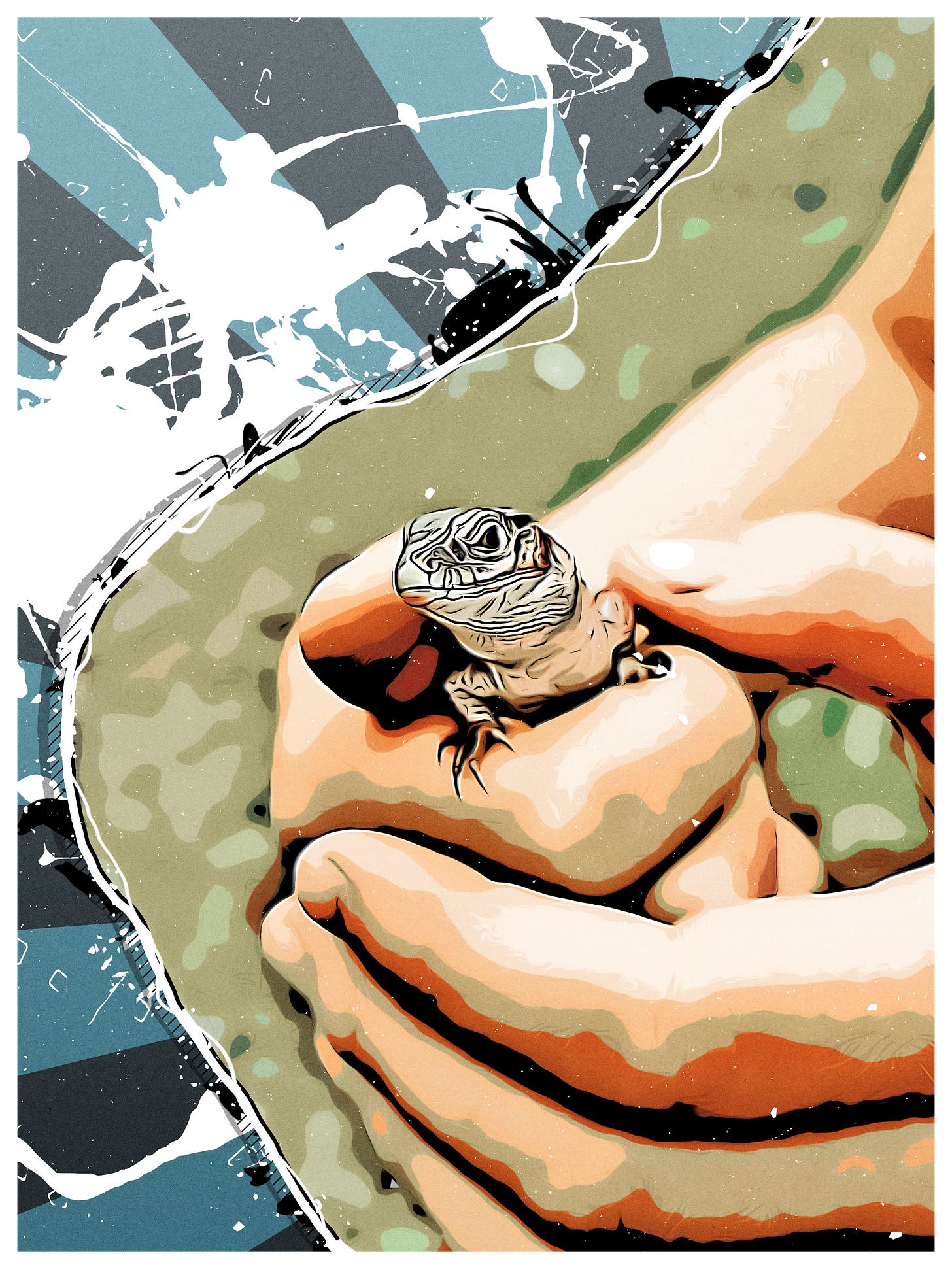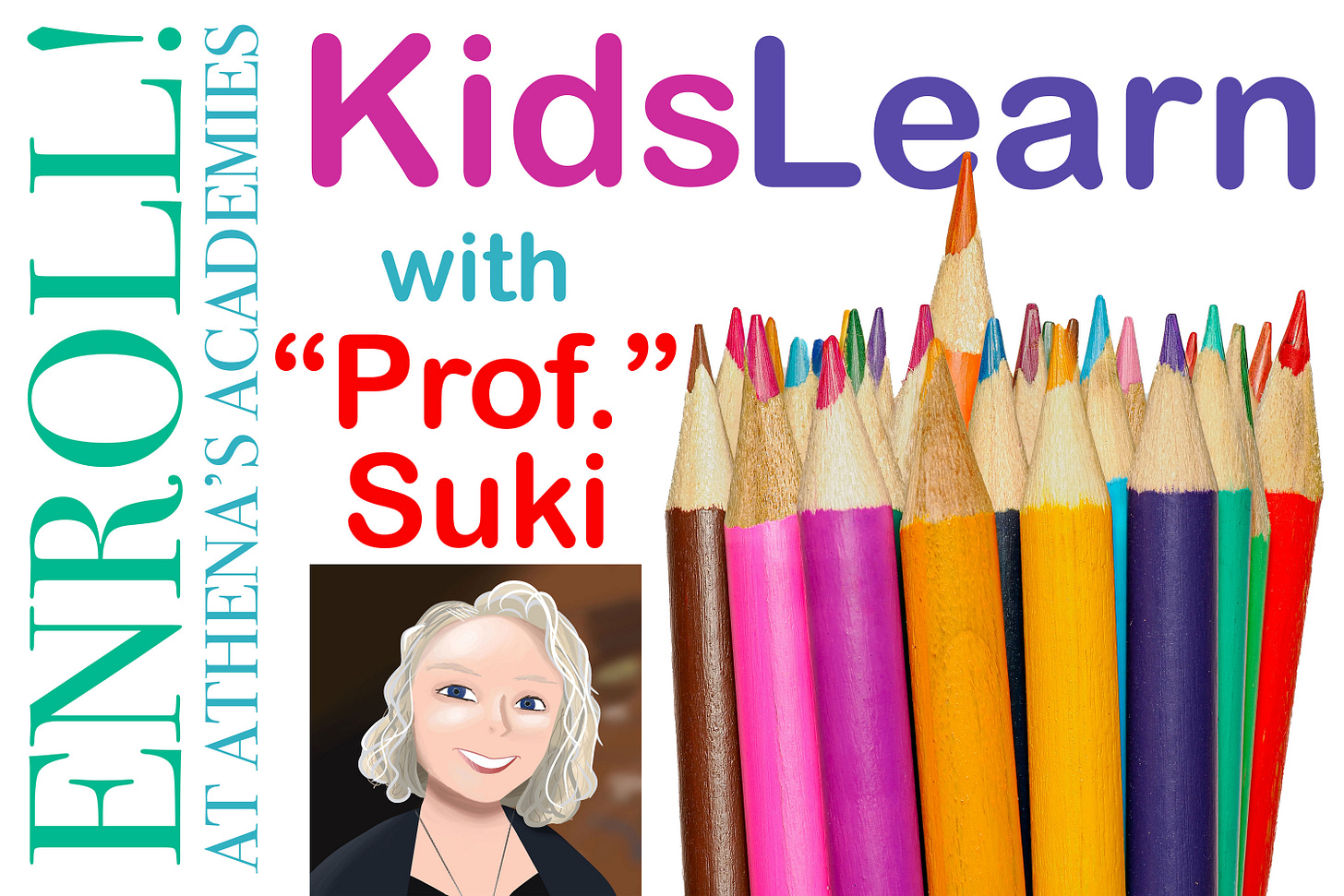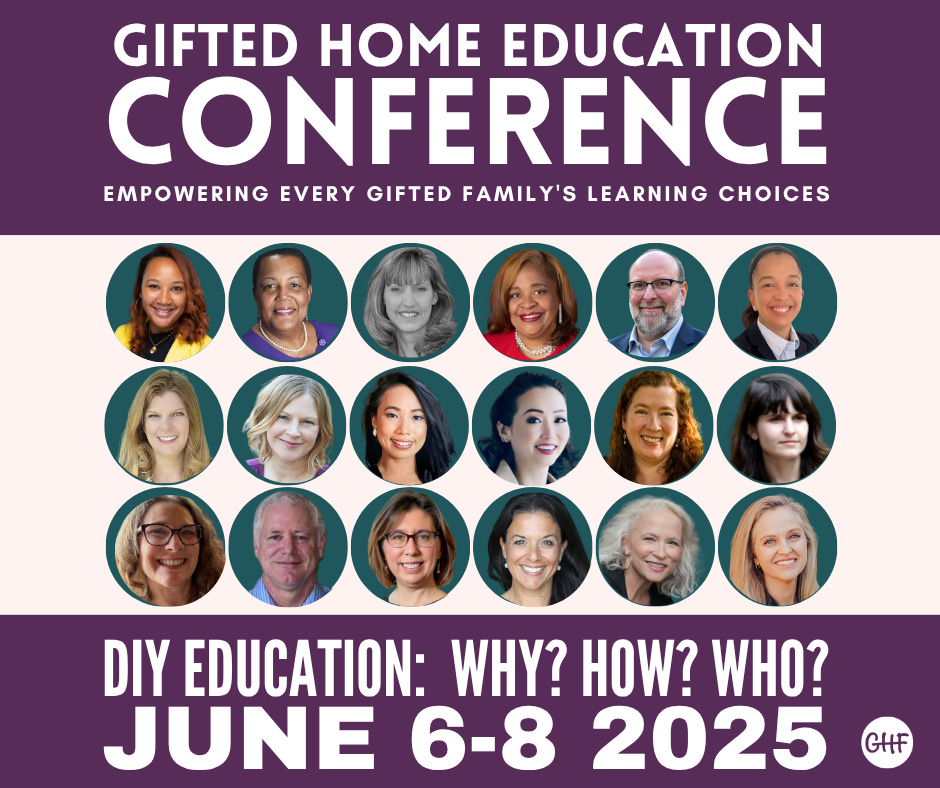Are algorithms threatening one of the greatest joys of childhood?
On the importance of chance and coincidence
The KidsLearn Substack is written by Suki Wessling, known as “Prof.” Suki to her students. Scroll to the bottom for links to Suki’s work and more information.
The death of coincidence
The Etymology Nerd writes about language, but his articles, like “The Death of Coincidence,” which inspired this piece, are about much more. I studied linguistics as an undergrad for precisely the same reason: the study of language is the study of everything human. Language is, fundamentally, what makes us human. I highly recommend you read his piece, but I’ll start with a summary in case you’d rather just read on.
How algorithms work
Algorithms are everywhere. They are simply instructions to tell a program what to do next. If the customer chooses a hamburger, ask them if they want pickles, but if they choose the chicken nuggets, ask them which dip they want.
The more people are online, the more our experiences are restricted by algorithms. Of course, we want the algorithms that save us time and effort, and many of them do just that. But when we consider the algorithms that try to figure out what we want, things get a little more complicated.
A now-famous problem, for example, is the “echo chamber” effect of YouTube’s very handy recommendations feature. When it works, it saves us time and offers us more of what we like. But unlike real life, YouTube’s algorithm serves to amplify what might be mild preferences and send us down narrow (and dark) rabbit holes. Numerous studies have demonstrated this effect.1
How algorithms are different from real life
Real life is full of chance and coincidence. Real life for children is magical because of chance and coincidence. When I was a child in a conservative Midwestern town, my public library held a showing of the film Black Orpheus. I had never seen such lush and complex storytelling or heard the gorgeous tones and beats of bossa nova. This film literally changed my life. And an algorithm would never have shown it to me.
Childhood is (or was) full of these magical moments:
Maybe you’re on your bike riding to the library (back in the day when you were allowed to do that) and a neighbor is in their yard looking at something and, curious, you stopped to see what it was (in the days before stranger danger) and they showed you a tiny lizard, starting you on your path to the study of herpetology.
Maybe your school goes on a field trip that you’re dreading (the last one was so boring) and you see your first musical and from that day on you are obsessed with musicals, not only learning about the music but the composers, the histories they embed, and more.
Maybe your parent needs you to be occupied more so they convince you to go to the chess group at your public library, even though chess is something you’ve never expressed any interest in, and there you make new friends and discover that math isn’t just boring worksheets, but also play and problem-solving at its most fun.
None of these sorts of experiences happen as a result of algorithms. The kid whose online traffic (and yes, they are following your kid!) shows an interest in Harry Potter is not going to be routed to a cool herpetology website. The kid who only listens to the pop music the “cool kids” in their school like will not ever stumble over a playlist of musicals. The kid who has never watched a math video will not get served up chess videos that stoke an interest in math.
Join me, along with an amazing lineup of top-of-their-field gifted/2e experts, at GHF’s 5th annual Gifted Home Education Conference: DIY Education, LIVE & FREE! This year’s theme focuses on the Why? How? and Who? of homeschooling, enriching and parenting the gifted and multi-exceptional. My talk is “The Academic Unschooler.” Click here for more information.
The online world is not one in which kids thrive
I think this is pretty true of all parents who have the luxury of raising our kids with intention. We don’t just want our kids to grow up; we want them to thrive.
We don’t feed them gray paste that simply sustains life; we serve them nutritious and interesting food.
We don’t pat them on the head once a day because we read that physical contact is important; we hug them and kiss them and love them up.
We don’t just teach them the 3 R’s (despite what some politicians think); we teach them the information and values we think will help them live a full and meaningful life.
The online world does not offer an environment in which kids thrive. The real world does. The online world has augmented the real world, for sure. But too many parents are allowing their kids to live in this world which does not offer more than the basic nutrients to sustain life.
A recipe for healthy doses of coincidence and chance
Institute rules for technology use and model them yourself. You can’t tell your kid not to stare at their screen if you’re sucked into yours.
Set your child free! Unless you live in a truly dangerous place, children should experience healthy doses of free play and free will. Sure, teach them about getting help if someone bothers them, but also teach them the truth: most adults are decent human beings.
Lots of my readers are homeschoolers, and I was a homeschooler, too. I know it’s hard to be “on” all day. And obviously, I love online courses. My kids learned so much online. But don’t give into the temptation to think that if your student is online all day long, they are in an appropriate learning environment. Children need to get outside. They need to be with people. They need chance and coincidence.2
Value randomness. Planning is overrated.

What do you do to make sure your kids’ lives aren’t ruled by algorithms?
I’d love to hear from you.

My children being grown up, I only recently learned about Let Grow. Great ideas there. My kids were little when I first read about Lenore Skenazy and Free Range Kids. I love Fairplay and have been following them for years.









